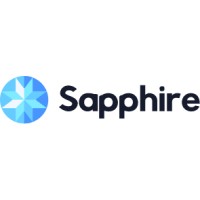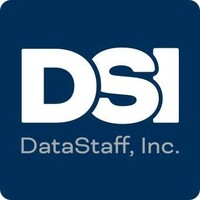

Cloud Engineer
⭐ - Featured Role | Apply direct with Data Freelance Hub
This role is for a Cloud Engineer with a contract length of "unknown," offering a pay rate of "unknown." It requires 7+ years of AWS cloud architecture experience, CI/CD, and data/ML infrastructure skills. The position is hybrid, based in Burbank.
🌎 - Country
United States
💱 - Currency
$ USD
-
💰 - Day rate
-
🗓️ - Date discovered
August 13, 2025
🕒 - Project duration
Unknown
-
🏝️ - Location type
Hybrid
-
📄 - Contract type
Unknown
-
🔒 - Security clearance
Unknown
-
📍 - Location detailed
Burbank, CA
-
🧠 - Skills detailed
#MLflow #Monitoring #Data Pipeline #Cloud #Data Processing #GitHub #ML (Machine Learning) #Documentation #IAM (Identity and Access Management) #Infrastructure as Code (IaC) #"ETL (Extract #Transform #Load)" #AI (Artificial Intelligence) #Lean #Security #Lambda (AWS Lambda) #Data Science #SageMaker #DynamoDB #Logging #Data Engineering #AWS (Amazon Web Services) #Databricks #Terraform #Observability #OpenSearch #Scala #Compliance #DevOps #Data Architecture #Agile #Forecasting #Deployment #S3 (Amazon Simple Storage Service) #AutoScaling
Role description
What We Do/Project
As part of the transformation, we are evolving how finance, business, and technology collaborate—shifting to lean-agile, user-centric small product-oriented delivery teams (PODs) that design and deliver integrated, intelligent, and scalable solutions.
The Senior Cloud Architect is a strategic technical leader embedded within the Platform Pod, but accountable for defining and evolving the cloud architecture that supports the full suite of applications.
This role is instrumental in establishing a secure, scalable, and reusable infrastructure backbone—enabling delivery pods across workstreams to rapidly deploy applications and data products that adhere to enterprise standards. From real-time data processing to AI/ML applications, the Cloud Architect ensures the platform can flex, scale, and grow with our needs.
Job Responsibilities / Typical Day in the Role
Lead Cloud Architecture Across Studio Economics
• Design and evolve AWS-native infrastructure patterns that support multiple workstreams and applications—including Title Economics, Content Sales Planning, and future forecasting tools.
• Define and maintain reference architectures, IaC modules, and CI/CD standards that can be adopted across product pods for consistency and reusability.
• Support a modular, composable architecture that allows applications to share common services, infrastructure layers, and observability tooling while maintaining domain-level autonomy.
Embed Security, Scalability, and Resilience by Design
• Apply best practices for security (e.g., IAM, KMS, audit logging), performance, and cost governance across all environments.
• Guide teams in adopting autoscaling, event-driven compute, and fault-tolerant patterns that support high-load events (e.g., major title launches, seasonal planning cycles).
• Ensure platform services are hardened for availability, traceability, and recoverability—aligned with enterprise compliance and operational standards.
Partner with Platform, Product, and Data Teams
• Work closely with the Platform Engineers and DevOps team to define and implement shared infrastructure services that support deployment, monitoring, and environment management.
• Support product pods (e.g., Title Economics, Forecasting) by advising on infrastructure design choices, provisioning reusable services, and removing environment blockers.
• Collaborate with Data Engineers and MLOps leads to support scalable data and ML pipelines with fit-for-purpose cloud resources (e.g., S3, SageMaker, Databricks, EventBridge).
Drive Platform Enablement and Governance
• Develop and maintain infrastructure documentation, templates, operational SLAs, and platform onboarding guides for application teams.
• Represent Studio Economics in cross-domain architecture forums and communities of practice to share standards, align decisions, and scale reusable patterns.
• Support cloud governance by embedding security, tagging, and resource accountability into all infrastructure as code artifact
Must Have Skills / Requirements
• Cloud Architecture Depth
• 7+ years of experience; Designing and supporting AWS-native, cloud-first platforms—leveraging services like Lambda, Step Functions, DynamoDB, AppSync, S3, and Cognito.
• Modern Engineering Practices
• 7+ years of experience; Experience delivering infrastructure through CI/CD (GitHub Actions, AWS CodePipeline), Infrastructure as Code (Terraform, CDK), and GitOps.
• Fluency in Data & ML Infrastructure
• 7+ years of experience; Experience supporting data-intensive applications and enabling cloud resources for AI/ML teams (e.g., MLFlow, SageMaker, Databricks, feature stores).
Functional Knowledge / Skills In The Following Areas
• You’ll thrive in this role if you:
• Think Beyond a Single Application
• You design with the future in mind—building shared infrastructure capabilities that serve current pods while enabling future application growth.
• Bridge Delivery with Platform Thinking
• You translate abstract platform goals into concrete, usable infrastructure patterns that empower agile teams to deliver with autonomy.
• Promote Resilience Through Enablement
• You embed observability, security, and scale into everything you design—and coach others to adopt them without introducing friction.
• Elevate Through Stewardship
• You drive governance not by control, but by enabling adoption of high-quality standards and simplifying decision-making for developers.
• Stay Adaptive
• You evolve your patterns, tooling, and mindset to meet the changing needs of application teams and Studio Economics as a whole.
• What You’ll Bring:
• Strong Communication and Alignment Skills
• Ability to translate infrastructure needs to a range of audiences—platform engineers, developers, TPOs, data scientists, and executives—while guiding consensus.
• A Bias for Platform Enablement
• You move quickly, unblock others, and help product teams deploy faster without reinventing infrastructure or compromising enterprise integrity.
• Ability to partner closely with Platform Owners, Data Architects, DevOps teams, and engineering pods to define shared infrastructure services and reduce delivery friction.
• Strong communication and collaboration skills—able to translate technical infrastructure concepts to non-technical stakeholders and influence across teams and architectural forums.
• Demonstrated ability to drive cloud governance adoption across delivery teams, including standardization of tagging, cost optimization, and operational SLAs.
• A bias for action and enablement—empowering teams to build with autonomy while ensuring adherence to scalable platform standards.
Technology Requirements
• What You’ll Bring:
• Cloud Architecture Depth
• Designing and supporting AWS-native, cloud-first platforms—leveraging services like Lambda, Step Functions, DynamoDB, AppSync, S3, and Cognito.
• Modern Engineering Practices
• Experience delivering infrastructure through CI/CD (GitHub Actions, AWS CodePipeline), Infrastructure as Code (Terraform, CDK), and GitOps.
• Cross-Workstream Support
• Proven ability to design shared infrastructure services and environments for multiple delivery teams without compromising agility or autonomy.
• Security and Operational Excellence
• Familiarity with implementing role-based access controls, security baselines, observability tools, and cost optimization practices across diverse workloads.
• Fluency in Data & ML Infrastructure
• Experience supporting data-intensive applications and enabling cloud resources for AI/ML teams (e.g., MLFlow, SageMaker, Databricks, feature stores).
• Proven experience developing and maintaining modular, reusable cloud architectures that support multiple applications and product teams across domains.
• Proficient in delivering infrastructure using Infrastructure as Code (IaC) frameworks (e.g., Terraform, AWS CDK, or CloudFormation) and CI/CD pipelines (e.g., GitHub Actions, AWS CodePipeline).
• Strong working knowledge of security, compliance, and resilience best practices—including IAM, encryption, audit logging, tagging standards, and fault-tolerant design.
• Demonstrated ability to embed observability and monitoring into platform services using tools like CloudWatch, X-Ray, OpenSearch, or similar.
• Hands-on experience supporting data-intensive and ML workloads, with practical knowledge of enabling platforms such as SageMaker, MLflow, Databricks, and real-time data pipelines (e.g., EventBridge).
Additional Notes
• Hybrid schedule (Tues-Thurs) required (Burbank)
#DICE
What We Do/Project
As part of the transformation, we are evolving how finance, business, and technology collaborate—shifting to lean-agile, user-centric small product-oriented delivery teams (PODs) that design and deliver integrated, intelligent, and scalable solutions.
The Senior Cloud Architect is a strategic technical leader embedded within the Platform Pod, but accountable for defining and evolving the cloud architecture that supports the full suite of applications.
This role is instrumental in establishing a secure, scalable, and reusable infrastructure backbone—enabling delivery pods across workstreams to rapidly deploy applications and data products that adhere to enterprise standards. From real-time data processing to AI/ML applications, the Cloud Architect ensures the platform can flex, scale, and grow with our needs.
Job Responsibilities / Typical Day in the Role
Lead Cloud Architecture Across Studio Economics
• Design and evolve AWS-native infrastructure patterns that support multiple workstreams and applications—including Title Economics, Content Sales Planning, and future forecasting tools.
• Define and maintain reference architectures, IaC modules, and CI/CD standards that can be adopted across product pods for consistency and reusability.
• Support a modular, composable architecture that allows applications to share common services, infrastructure layers, and observability tooling while maintaining domain-level autonomy.
Embed Security, Scalability, and Resilience by Design
• Apply best practices for security (e.g., IAM, KMS, audit logging), performance, and cost governance across all environments.
• Guide teams in adopting autoscaling, event-driven compute, and fault-tolerant patterns that support high-load events (e.g., major title launches, seasonal planning cycles).
• Ensure platform services are hardened for availability, traceability, and recoverability—aligned with enterprise compliance and operational standards.
Partner with Platform, Product, and Data Teams
• Work closely with the Platform Engineers and DevOps team to define and implement shared infrastructure services that support deployment, monitoring, and environment management.
• Support product pods (e.g., Title Economics, Forecasting) by advising on infrastructure design choices, provisioning reusable services, and removing environment blockers.
• Collaborate with Data Engineers and MLOps leads to support scalable data and ML pipelines with fit-for-purpose cloud resources (e.g., S3, SageMaker, Databricks, EventBridge).
Drive Platform Enablement and Governance
• Develop and maintain infrastructure documentation, templates, operational SLAs, and platform onboarding guides for application teams.
• Represent Studio Economics in cross-domain architecture forums and communities of practice to share standards, align decisions, and scale reusable patterns.
• Support cloud governance by embedding security, tagging, and resource accountability into all infrastructure as code artifact
Must Have Skills / Requirements
• Cloud Architecture Depth
• 7+ years of experience; Designing and supporting AWS-native, cloud-first platforms—leveraging services like Lambda, Step Functions, DynamoDB, AppSync, S3, and Cognito.
• Modern Engineering Practices
• 7+ years of experience; Experience delivering infrastructure through CI/CD (GitHub Actions, AWS CodePipeline), Infrastructure as Code (Terraform, CDK), and GitOps.
• Fluency in Data & ML Infrastructure
• 7+ years of experience; Experience supporting data-intensive applications and enabling cloud resources for AI/ML teams (e.g., MLFlow, SageMaker, Databricks, feature stores).
Functional Knowledge / Skills In The Following Areas
• You’ll thrive in this role if you:
• Think Beyond a Single Application
• You design with the future in mind—building shared infrastructure capabilities that serve current pods while enabling future application growth.
• Bridge Delivery with Platform Thinking
• You translate abstract platform goals into concrete, usable infrastructure patterns that empower agile teams to deliver with autonomy.
• Promote Resilience Through Enablement
• You embed observability, security, and scale into everything you design—and coach others to adopt them without introducing friction.
• Elevate Through Stewardship
• You drive governance not by control, but by enabling adoption of high-quality standards and simplifying decision-making for developers.
• Stay Adaptive
• You evolve your patterns, tooling, and mindset to meet the changing needs of application teams and Studio Economics as a whole.
• What You’ll Bring:
• Strong Communication and Alignment Skills
• Ability to translate infrastructure needs to a range of audiences—platform engineers, developers, TPOs, data scientists, and executives—while guiding consensus.
• A Bias for Platform Enablement
• You move quickly, unblock others, and help product teams deploy faster without reinventing infrastructure or compromising enterprise integrity.
• Ability to partner closely with Platform Owners, Data Architects, DevOps teams, and engineering pods to define shared infrastructure services and reduce delivery friction.
• Strong communication and collaboration skills—able to translate technical infrastructure concepts to non-technical stakeholders and influence across teams and architectural forums.
• Demonstrated ability to drive cloud governance adoption across delivery teams, including standardization of tagging, cost optimization, and operational SLAs.
• A bias for action and enablement—empowering teams to build with autonomy while ensuring adherence to scalable platform standards.
Technology Requirements
• What You’ll Bring:
• Cloud Architecture Depth
• Designing and supporting AWS-native, cloud-first platforms—leveraging services like Lambda, Step Functions, DynamoDB, AppSync, S3, and Cognito.
• Modern Engineering Practices
• Experience delivering infrastructure through CI/CD (GitHub Actions, AWS CodePipeline), Infrastructure as Code (Terraform, CDK), and GitOps.
• Cross-Workstream Support
• Proven ability to design shared infrastructure services and environments for multiple delivery teams without compromising agility or autonomy.
• Security and Operational Excellence
• Familiarity with implementing role-based access controls, security baselines, observability tools, and cost optimization practices across diverse workloads.
• Fluency in Data & ML Infrastructure
• Experience supporting data-intensive applications and enabling cloud resources for AI/ML teams (e.g., MLFlow, SageMaker, Databricks, feature stores).
• Proven experience developing and maintaining modular, reusable cloud architectures that support multiple applications and product teams across domains.
• Proficient in delivering infrastructure using Infrastructure as Code (IaC) frameworks (e.g., Terraform, AWS CDK, or CloudFormation) and CI/CD pipelines (e.g., GitHub Actions, AWS CodePipeline).
• Strong working knowledge of security, compliance, and resilience best practices—including IAM, encryption, audit logging, tagging standards, and fault-tolerant design.
• Demonstrated ability to embed observability and monitoring into platform services using tools like CloudWatch, X-Ray, OpenSearch, or similar.
• Hands-on experience supporting data-intensive and ML workloads, with practical knowledge of enabling platforms such as SageMaker, MLflow, Databricks, and real-time data pipelines (e.g., EventBridge).
Additional Notes
• Hybrid schedule (Tues-Thurs) required (Burbank)
#DICE





